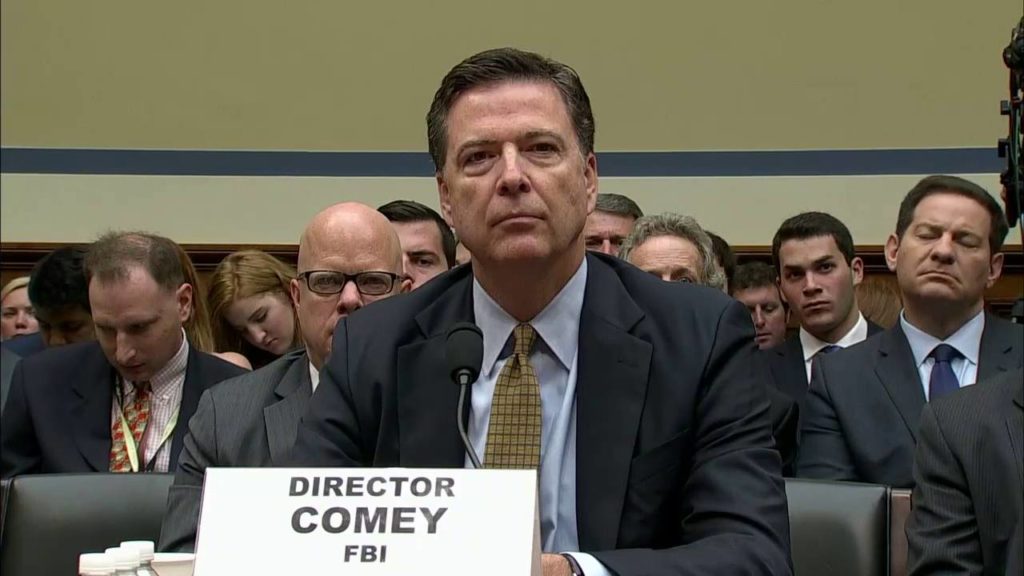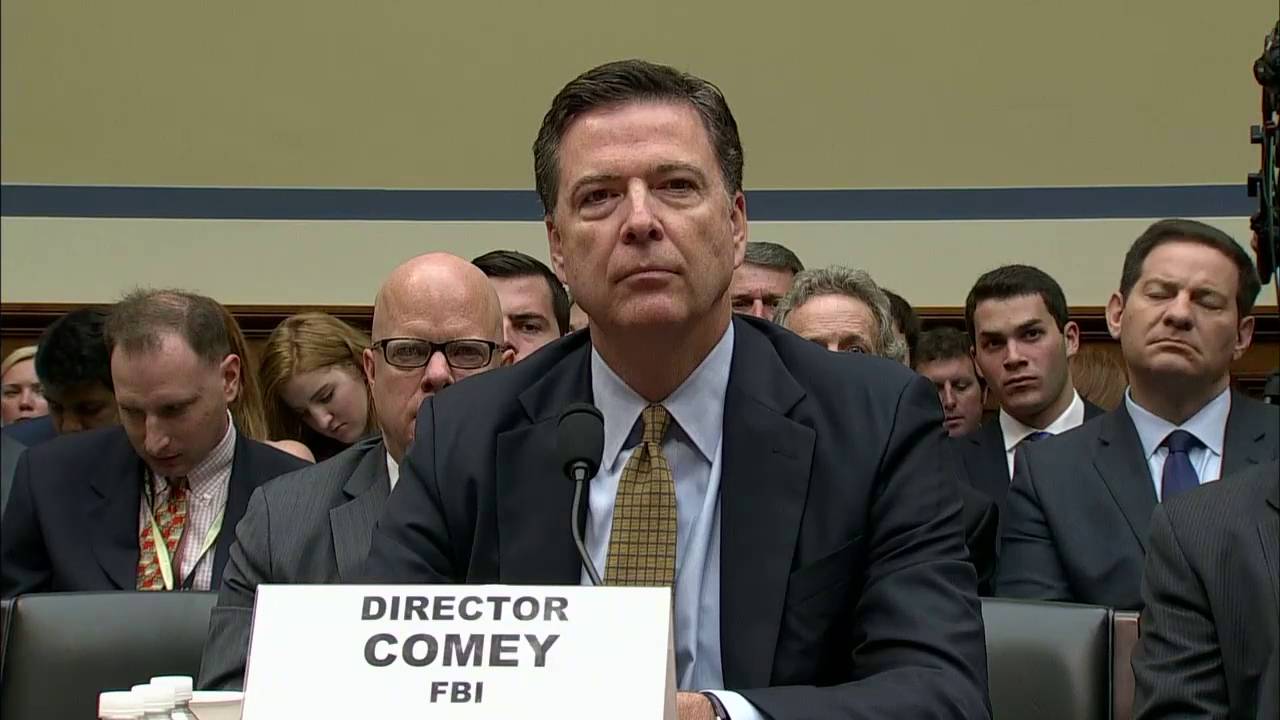With last month’s release of former FBI Director James Comey’s book, A Higher Loyalty: Truth, Lies, and Leadership, much has been parsed, dissected and run through the echo chamber of cable news.
The question partisan critics continue to rail on: how many lies does Comey tell in his book?

The answer: none.
Throughout the 277 pages that cover Comey’s life and career, his vital message is clear: “Values — like truth, integrity, and respect for others, to name just a few — serve as external reference points for ethical leaders to make decisions. Ethical leaders choose a higher loyalty to those core values over their own personal gain.”
While some have labeled Comey’s book a “tell-all,” it’s not. It’s really an ethical autobiography – a look at lessons learned, and values applied beginning with a young Comey working for Harry Howell, the grocery store owner whose biggest lesson to Comey was respect and compassion for your employees, even when they make mistakes, especially when they make mistakes.
If I were to distill the former FBI director’s book into a few ethical messages, it would be these that he most often repeats: “Tell me the truth”; “Facts matter”; and “Follow the law and the facts.”
As a former U.S. Attorney and Deputy Attorney General, Comey’s life experience and creed revolves around trust and credibility. From his battles to take down La Cosa Nostra; to dealing with Martha Stewart lying to federal prosecutors over a $50,000 stock trade; to his late-night battle against George W. Bush allies; time and again, Comey reiterates his message of ethical leadership — Ethical leaders work to create an atmosphere that acknowledges and supports all within the organization. They’re willing to listen to dissenting opinions. While thoughtful, ethical leaders are at ease in their own skin without taking themselves too seriously. But perhaps most importantly:
“…ethical leaders lead by seeing beyond the short-term, beyond the urgent and take every action with a view toward lasting values. … But those values … serve as external reference points for ethical leaders to make decisions, especially hard decisions in which there is no easy or good option.”
While many in the political bubble of Washington continue to criticize his decisions, Comey’s decision-making process demonstrates both character and courage, and he paid a high price for both. One example came during his tenure as deputy attorney general in a late-night hospital visit to a critically ill Attorney General John Ashcroft.
With Comey sitting by the AG’s hospital bed along with then FBI Director Robert Mueller, President George W. Bush’s closest allies, Alberto Gonzales and Andrew Card, entered the room, approached the gravely ill Ashcroft to get him to reauthorize the legally questionable NSA surveillance program.
“And then,” as Comey describes, “John Ashcroft did something that amazed me. He pushed himself up on the bed with his elbows, [and] said he had serious concerns about the legal basis for parts of the program… ‘But that doesn’t matter now,’ he said, ‘because I’m not the attorney general.’ With a finger extended from his shaking left hand, he pointed at me. ‘There is the attorney general.’ ”
In the days that followed, Acting Attorney General Comey met with Bush and, along with Justice officials, came to an agreement as to how the program could be implemented, legally.
Concerning his much-debated decisions regarding the FBI’s investigation into Hillary Clinton’s emails, Comey walks us through two key questions:
“The first question was whether classified documents were moved outside of classified systems or whether classified topics were discussed outside of a classified system. If so, the second question was what the subject of the investigation was thinking when she mishandled that classified information.”
The answer to the first question, Comey says, was “yes.” However, answering the second question proved more difficult. “What was she thinking when she did this? Was it sloppy or was there criminal intent? Could we prove that she knew she was doing something she shouldn’t be doing?”
Comey uses the yardstick of former CIA Director David Petraeus when the former general knowingly shared “…troves of highly sensitive, top-secret information” to his mistress Paula Broadwell.
“In contrast to those Hillary Clinton corresponded with,” Comey writes, “[Broadwell] did not have the appropriate clearance or a legitimate need to know the information, which included notes of discussions with President Obama about very sensitive programs.
“Then,” Comey points out, “[Petraeus] lied to the FBI agents about what he had done.”
However, the Clinton email issue became an ethical quagmire that would ultimately force the FBI director to step away from Attorney General Loretta Lynch, for several reasons, not the least of which was because of a meeting Lynch had with former President Bill Clinton on a plane sitting on a tarmac.
“For years,” Comey emphasizes, “I have spoken of the reservoir of trust and credibility that makes possible all the good we do at the FBI and the Department of Justice. When we stand up, whether in a courtroom or at a cookout, and identify ourselves as part of those institutions, total strangers believe what we say, because of that reservoir. Without it, we are just another partisan player in a polarized world. … The FBI must be an ‘other’ in this country or we are lost.
“The American people needed and deserved transparency,” Comey concludes regarding his decision to publicly discuss the Clinton investigation. “As things stood, I was going to step to a podium on Tuesday morning, July 5, in FBI headquarters and end this case. Unless, of course, Hillary Clinton lied to us when we finally conducted our interview with her, on July 2, 2016.”
The process that Comey writes about in the Clinton chapter is both thoughtful and thorough. So too was his urgent need to choose between “concealing” from the American people what was going on or “speaking” publicly about it days before the 2016 election, when, with the case closed, it was discovered that disgraced Congressman Anthony Weiner had thousands of Clinton emails on his laptop.
“Speak or conceal – both terrible options,” Comey concluded. But the FBI director maintained that he never made decisions in a vacuum. With his senior team at a conference table, Comey explains that “We talked, then broke so people could think, then we talked again… I was hearing from everyone, with nothing held back. …we needed every view, every concern, every argument.”
Comey reasoned that if, after she was elected, it was revealed that Clinton remained a subject of an FBI investigation, what then? What if the FBI found damaging criminal culpability after the election and what would the American public think?
“No matter what we found,” Comey writes, “the act of concealment would be catastrophic to the integrity of the FBI and the Department of Justice.”
Then, one team member asked this question: “Should you consider that what you are about to do may help elect Donald Trump president?”
“It is a great question,” Comey says. “but not for a moment can I consider it. Because down that path lies the death of the FBI as an independent force in American life. If we start making decisions based on whose political fortunes will be affected, we are lost.”
And that, readers, is called integrity.
However, Comey’s probity to “follow the law and the facts” would face an even greater test with Donald Trump.
That comes Friday.
Comments










